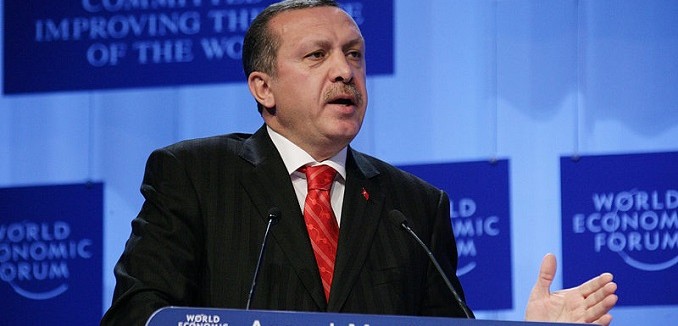As its “Zero Problems” foreign policy continues to crumble, Turkey’s ruling Justice and Development Party (AKP) embarked on a series of moves this week that threatened to heighten tensions with a range of regional and global actors.
Turkish officials publicly raised the prospect of deploying NATO Patriot batteries along Turkey’s southern border with Syria. The missiles would be a critical step in establishing a no-fly zone over northern Syria that would provide protection to opposition forces seeking the overthrow of Syrian President Bashar al-Assad, with whom until recently Turkish Prime Minister Erdogan had sought deep ties.
NATO countries have thus far resisted providing material support for Turkey in the context of the Syrian war, and the introduction of NATO assets would likely trigger strong objections from Russia. Moscow provides arms to the Assad regime, considers Syria to be within its sphere of influence, maintains a naval resupply base in the Syrian port of Tartus, and even decades after the Cold War continues to view NATO with at best cold suspicion. The AKP’s posture toward Syria also drew domestic criticism from opposition leaders, as Turkish media bemoaned that the country’s political environment had “hit an all-time low.”
Meanwhile, the Turkish military dispatched F-16s across the border into Iraq, bombing bases of the Kurdistan Workers’ Party (PKK) and killing five. The PKK – which is identified as a terrorist organization by the U.S., EU, and others – is locked in a decades-old war with Turkey, the latest iteration of which has led Ankara to close off large swaths of southeastern Turkey. Turkish forces further conducted a two-day ground operation in Iraq, penetrating as far as 3 miles into Iraqi territory in order to target Kurdish groups.
The Turkish military campaign occurred as Iraq expelled Turkey’s state oil operator from an exploration contract, though analysts linked that move more to Baghdad’s notoriously byzantine energy politics than to Turkey’s invasion of autonomous Kurdish territories in Iraq.
Extending a diplomatic offensive against Israel, another country with which Ankara had once cultivated ties, Turkish officials launched what diplomats and politicians derided as a “kangaroo court” and a “show trial.” Turkish prosecutors opened proceedings in absentia against four Israelis who they blame for Israel’s 2010 interception of a terrorist-linked Turkish vessel which was trying to breach Israel’s U.N.-validated blockade of the Hamas-controlled Gaza Strip. The announcement came in the aftermath of Erdogan telling reporters that he intends to personally visit the Gaza Strip in the near future, a move that would boost Hamas and to which the U.S. State Department has registered strong objections.
Erdogan has become increasingly strident and at times erratic in his hostility toward Israel, insisting last September in an interview with the Washington Post that Israel has threatened to wipe Iran off the face of the Earth.
[Photo: World Economic Forum / Wiki Commons]




